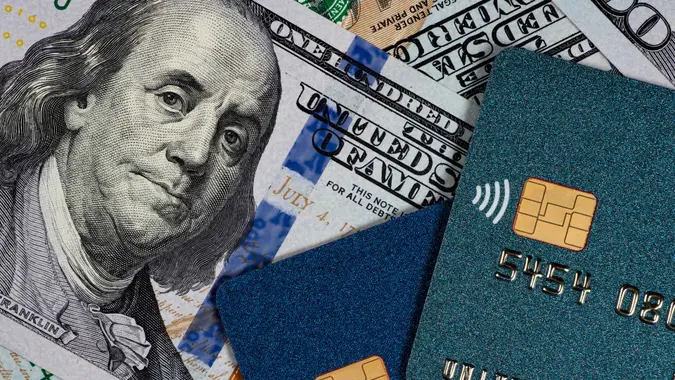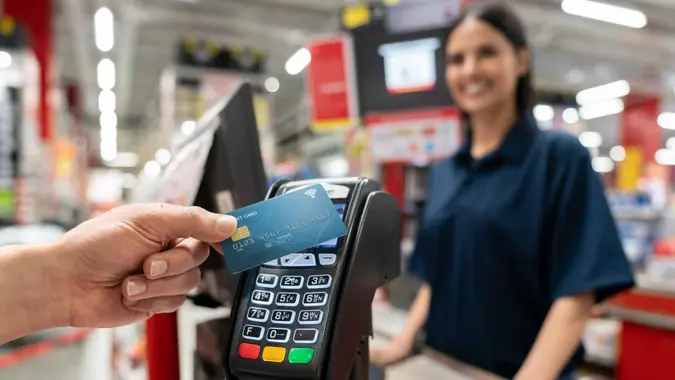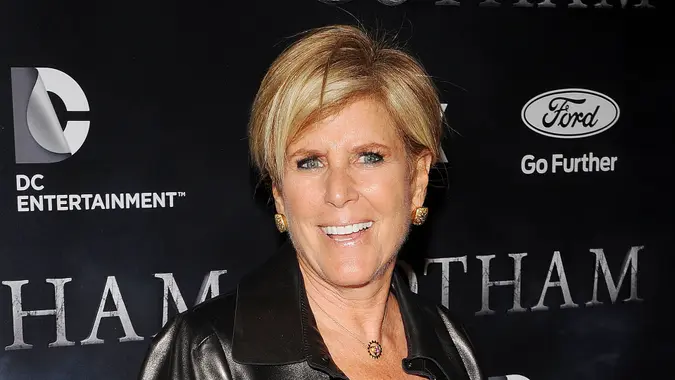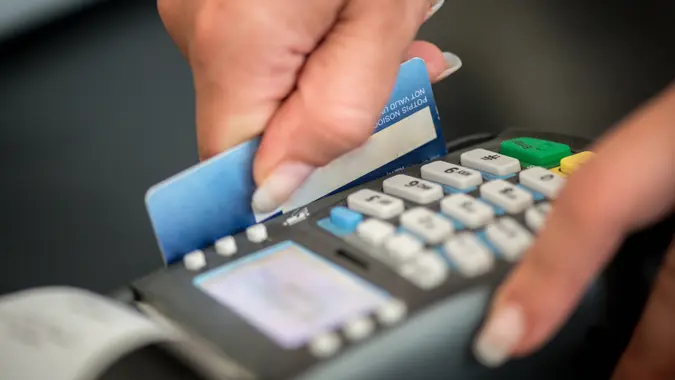Why It’s a Bad Move To Use the Same Credit Cards Indefinitely

Commitment to Our Readers
GOBankingRates' editorial team is committed to bringing you unbiased reviews and information. We use data-driven methodologies to evaluate financial products and services - our reviews and ratings are not influenced by advertisers. You can read more about our editorial guidelines and our products and services review methodology.

20 Years
Helping You Live Richer

Reviewed
by Experts

Trusted by
Millions of Readers
Although credit cards offer a high level of convenience, they’re not for everyone. If you have trouble paying off your balance every month, you’ll end up paying high interest charges and potentially damage your credit score. However, for those who can use credit cards responsibly, they can be a great financial tool. For starters, proper credit card usage can raise your credit score, which will potentially lower the interest rate on any future borrowings, from auto loans to home mortgages. Credit cards also typically provide a wide range of perks.
Drawbacks of Using the Same Credit Cards Indefinitely
The main drawback of using the same credit card indefinitely is that you may be short-changing yourself when it comes to benefits. New cards typically carry lucrative sign-up bonuses, and card issuers are constantly innovating when it comes to new features and benefits. Even if your card was considered cutting edge or top-of-the-line at the time you got it, it’s likely been eclipsed by the value you can get out of newer cards.
If you’re looking to keep your credit score high, it might actually be to your advantage to have a few different credit cards instead of just one. The reason is credit utilization, which is a big factor when it comes to your credit score. With more than one credit card, you’ll have a higher total credit line. If you carry a balance on your credit cards, a higher total credit line will keep your credit utilization low, helping to protect your credit score.
What Benefits Can You Expect From a New Card?
Signing up for a new card can open up a world of new benefits to you. For starters, most cards these days offer at least some type of sign-up bonus, from a $100 statement credit to 100,000 or more points. After that, most cards will provide you with a wide array of features and benefits. Typically, the most expensive cards offer the most benefits, from free baggage on airlines to lounge access, free subscriptions to food delivery services, travel credits and more. But even cards with no annual fee can offer a number of features, from bonus points on purchases like groceries, gas stations and travel to cellphone insurance and anniversary points bonuses.
Beware of Signing Up for Too Many Cards
Although there are many benefits to signing up for new credit cards, there are caveats as well. Every time you apply for a new credit card, your credit score will get dinged by a few points. This is only temporary, and the drop doesn’t last that long, but too many inquiries in a short period of time can result in quite a drag on your score. Potential lenders might also view your multiple requests for credit as a sign of financial instability, making them less likely to extend you additional credit.
Another drawback of having too many credit cards is the amount you’ll have to pay in annual fees. While not all cards charge a fee, if you have 10 or 20, you’re likely paying a few hundred dollars per year just in annual fees, and perhaps as much as $1,000 or more. You might also be tempted to spend more if you have an ever-increasing credit limit, which could result in significant interest charges if you’re unable to pay your balances in full.
More From GOBankingRates
 Written by
Written by  Edited by
Edited by 
























